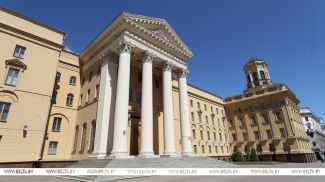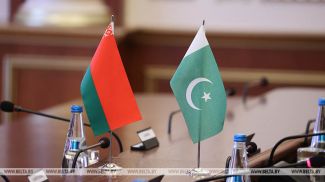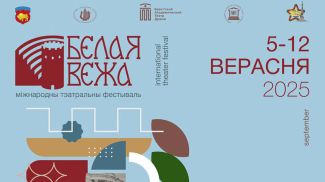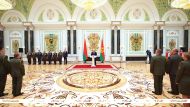MINSK, 5 December (BelTA) – A large-scale national sociological survey on family formation, stability of family relations and fertility in the changing socio-economic conditions of the life of Belarusians held within the framework of the Generations and Gender Program of the United Nations Economic Commission for Europe has been completed in Belarus. Its preliminary results were announced in Minsk on 4 December, BelTA has learned.
The survey was held in May-November 2017 to analyze the process of family formation, fertility, intergenerational interaction, the role of men and women in family life. The results will help work out a scientifically founded population policy and programs.
“The survey was conducted by the Center of Sociological and Political Studies of the Belarusian State University in close cooperation with the Generations and Gender Program coordinator – the Netherlands Interdisciplinary Demographic Institute (NIDI). Some 10,000 Belarusians aged between 18 and 79 were polled. For the first time, tablets were used in the survey to speed up data collection and processing. Belarusian families need support from the state in order to become more sustainable, to have more children. To understand what kind of support is needed, it is necessary to know what changes are taking place in the society,” Belarus' Deputy Labor and Social Security Minister Alexander Rumak said.
According to the deputy minister, in Belarus, as in other European countries, the median age at marriage for both men and women has been increasing. In 2016, it was 27.8 years for males and 25.6 years for women. Whereas 10 years ago, these figures were two years younger. The mother's mean age at first birth was 24 years in 2006, 26.3 years in 2016 . “Hopefully, the results of the study will help us understand how to encourage young families to have children,” said Alexander Rumak. According to him, a decision was taken to extend the project until 31 March 2018 to fully complete the study and publish two collective monograph.
“The survey results will help us take the first step to developing a disaggregated database to achieve the sustainable development goals and strengthen the family relations,” noted Larisa Belskaya, the head of the main directorate of multilateral diplomacy at the Ministry of Foreign Affairs. UNICEF representative in Belarus Dr. Rashed Mustafa Sarwar thanked the country for joining the 25 states – participants of this important research.
The national sociological survey “Family formation, stability of family relations and fertility in the changing socio-economic conditions of the life of Belarusians” has been implemented as part of the project of international technical assistance to support the national demographic security program of the Republic of Belarus funded by the Russian government, the United Nations Population Fund (UNFPA) and the United Nations Children's Fund (UNICEF).













